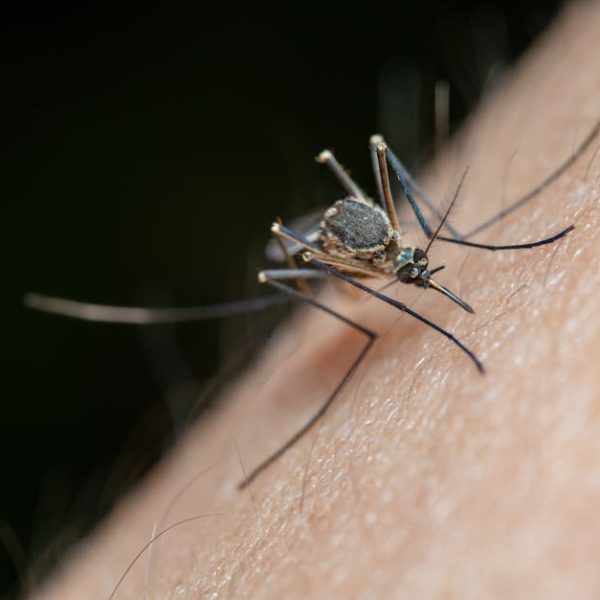Investing time in creating a safe living environment that’s free from potentially dangerous creatures like snakes is a top priority for many homeowners. For those who prefer a natural approach, homemade snake repellents can serve as an effective solution. By understanding what snakes dislike and leveraging this knowledge, you can devise simple homemade recipes that can act as potent deterrents, reducing the likelihood of these slithery creatures making their way into your yard and home.
Understanding What Snakes Dislike
Snakes, like most creatures, have certain environmental conditions they favor and ones they detest. Exploring what puts them off could be the key to keeping them at bay from your household. Among the things snakes tend to avoid are certain strong smells, extreme temperatures, and specific textures. Making your property less attractive to them by incorporating these elements can be an effective way of repelling them.
Mothballs- A Traditional Snake Repellent
A popular traditional snake repellent is the humble mothball. The active ingredient in mothballs, naphthalene, is believed to be effective in repelling snakes. However, it’s important to be aware that while mothballs may deter these serpents, they can also be harmful to pets, humans, and the environment if used improperly. Consequently, while they can be put to use, it’s essential to handle with care, keeping them out of reach of children and pets, and using them in ways that minimize environmental harm.
Cloves and Cinnamon Oil Recipe
A concoction of oils extracted from cloves and cinnamon can serve as a homemade snake repellent, with these two ingredients possessing smells that snakes find distasteful. Start by combining equal parts of clove and cinnamon oils, dabbing cotton balls in the mixture, and then placing these strategically around the area you wish to keep snake-free. Remember to periodically check these oil-soaked balls and refresh them regularly to keep the scent strong enough to deter snakes.
Biodiesel Recipe for Snake Repellent
Biodiesel isn’t just a green fuel; it’s also an effective snake repellent. Simply spreading biodiesel around your yard or sprinkling it on areas where snakes are likely to slither can help keep these reptiles away. While it may not be as readily accessible as mothballs or essential oils, it offers a unique solution that could be incorporated alongside others to create a multi-layered defense against snakes.
Remember that homemade snake repellents, while useful, should not replace professional help if you have a significant snake problem. Using these in conjunction with professional pest control measures can ensure your home remains as snake-free as possible.
Vinegar and Rock Salt Recipe
Another effective homemade snake repellent can be crafted using vinegar and rock salt. Both of these common household items contain smells and properties that snakes dislike. To create this repellent, mix together one cup of white vinegar and one cup of rock salt. Apply this mixture around your yard, particularly around the parameter and in areas where snakes may hide. Be aware that this mixture can kill grass and harm some types of plants, so only use it in areas where you’d like to keep vegetation-free.
Napthalene Flakes Recipe
Napthalene, the primary component in mothballs, can also be obtained in a raw, flaked form. These flakes can be spread around your property as a snake deterrent. Keep in mind that, just like mothballs, napthalene can be toxic to pets and humans among others, so use them cautiously and keep them away from areas where children or pets spend time.
Garlic and Onion Recipe
A popular recommendation is to use a combination of garlic and onion as a snake repellent. The potent smell of these two ingredients when crushed together can be an effective deterrent for snakes. You simply need to crush a few cloves of garlic and an onion together, spread this mixture around your home, and replenish as needed.
Ammonia and Liquid Detergent Recipe
Another homemade snake repellent is a combination of ammonia and liquid detergent. By soaking rags or cloths in this solution and placing them around your home, the strong smell emitted by the ammonia can effectively deter snakes. However, make sure this mixture is kept away from pets and children as the smell can be very strong and chemicals can be harmful.
Common Snake Repelling Plants to Plant Around Your Home
Another natural way to deter snakes from your property is by planting certain types of foliage in and around your home. Plants like marigold, lemongrass (especially the variety containing citronella), and mother-in-law’s tongue (also known as the snake plant) can help keep snakes at bay. It’s important to remember that while these plants can help deter snakes, they’re not a foolproof solution, and other repellents should be used in combination for the best protection.
In conclusion, though DIY snake repellents can certainly help, it’s always advised to seek professional help if you have a persistent snake problem in your property. Meanwhile, these recipes can work as temporary solutions to keep your home a less appealing environment for snakes. Enjoy your newfound peace of mind and a snake-free home!
Key Takeaway:
- Homemade snake repellents can be an effective solution to keep your home and outdoors safe from snakes.
- Understanding what snakes dislike and incorporating them into repellents can be beneficial.
- Traditional snake repellents such as mothballs, albeit useful, necessitate proper handling due to their harmful effects on the environment and health.
- Repellents made using cloves and cinnamon oil, biodiesel, vinegar and rock salt, napthalene flakes, garlic and onion, and ammonia and liquid detergent can repel snakes.
- Certain plants like marigold, lemongrass, and mother-in-law’s tongue can naturally repel snakes.
- While homemade repellents can help keep snakes at bay, professional help should be sought for persistent snake problems.
Despite the fear they may instill, remember that snakes, like all creatures, have their place in the ecosystem. Use these homemade snake repellent methods responsibly and aim only to deter, not harm them. Keep your home safe without upsetting nature’s balance.
FAQs
Q: What should I do if the homemade snake repellents do not work?
A: If the snake problem persists despite using homemade repellents, it’s highly recommended to engage a professional pest control service for assistance.
Q: Are all snakes dangerous?
A: Not all snakes are dangerous; in fact, only a small percentage are venomous. However, one should exercise caution around snakes due to their potential to cause harm if threatened.
Q: Besides repellents, what other ways can I keep snakes away from my home?
A: Limiting potential food supply by controlling pests and eliminating hiding spots like tall grasses and junk piles can dissuade snakes from entering your property.
Q: Can I use these repellents around my pets?
A: Several of these repellents, particularly those involving chemicals, can be harmful to pets. Always use them with caution and keep them out of reach of your pets.
Q: Are these repellents harmful to the environment?
A: Some homemade snake repellents could have negative impacts on the environment. It’s important to use these solutions responsibly, aiming to merely deter and not harm the snakes.
Click on the share button if you found this article helpful, and feel free to explore other posts on our website too!






